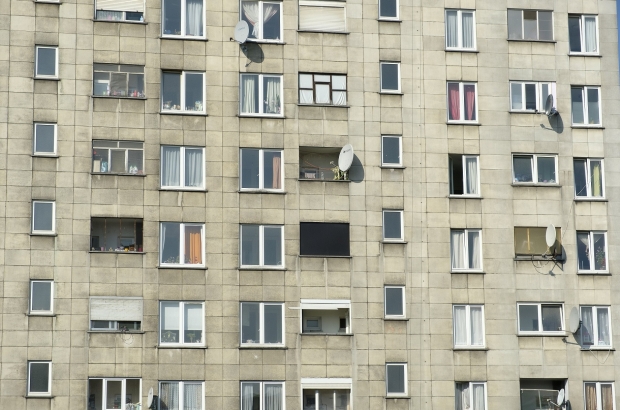- Daily & Weekly newsletters
- Buy & download The Bulletin
- Comment on our articles
More than 50,000 on waiting list for Brussels social housing
More than 50,000 people are on the waiting list for social housing in Brussels, reflecting a worsening housing crisis in the Belgian capital.
Supply has remained relatively stable since 2005, but demand has more than doubled over the same period.
As a result, the waiting list for social housing is getting longer, with a 9% increase in 2023, accounting for 53,801 Brussels households seeking a place.
There were a total of 6,354 new registrations for social housing allocation in that same year, representing an increase of more than 40% compared to 2022.
Brussels is already grappling with high population density, rising rents and increasing homelessness, according to the latest barometer from the Brussels Institute for Statistics and Analysis (Bisa).
Almost a third (31%) of the Brussels population lives in overcrowded housing, compared to only 3% in the other regions of Belgium. Of those in overcrowded housing, a large proportion also face other housing problems such as damp walls or leaking roofs.
The Brussels region has a total of about 602,000 homes for 575,000 families and the region is characterised by a high proportion of renters (62% of homes, compared to 30% in Flanders and 36% in Wallonia).
Brussels is the most expensive place to live in all of Belgium, and costs are only rising. Average rents for new leases in 2023 rose by 4.1% compared with the previous year.
The poorest households are particularly affected. Some 40% of the lowest-income households have access to just 10% of the rental market, and 28% of the Brussels population in 2023 lived in a household with an income below the poverty risk threshold – three times higher than in Flanders.
The housing crisis results in many Brussels residents becoming homeless. In 2022, Brussels had 7,134 homeless people, including 977 minors. An estimated 2,400 people were effectively living on the streets while others were staying in shelters, medical institutions, squats or with third parties.
More recent figures are not yet available, but the non-profit Bruss'Help fears the number of homeless could be as high as 10,000 this year.
ULB researchers calculated that homelessness can cost between €30,000 and €85,000 per person annually, depending on the services consulted.



















